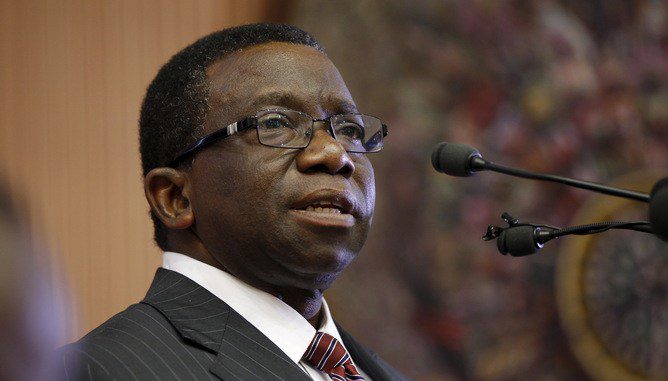
Nigeria has dropped from second to the fourth country worst hit by the Human Immuno Virus (HIV) epidemic in the world, as the results from Nigeria HIV/ AIDs Indicator and Impact Survey (NAIIS), shows that 1.9 million Nigerians are presently living with the virus. Before now, about 3.2 million people were estimated to be living with the virus in Nigeria, ranking second after South Africa which ranks first with about 7.1 million people living with HIV.
The survey, which was launched by the Federal Government in June 2018 to determine the true distribution of HIV and AIDS, Hepatitis B and Hepatitis C in the country, reached about 220,000 people in about 100,000 households and was conducted between July and December 2018. Minister of Health, Prof. Isaac Adewole, made the new ranking known yesterday at the official announcement of the result of the NAIIS at the Presidential Villa, Abuja. Adewole noted that based on the survey, the new position places Nigeria after South Africa, India and Mozambique.
According to him, the NAIIS findings provide Nigeria with an accurate national HIV prevalence measure of 1.4 per cent, which contradicts the 2016 report by the World Health Organisation (WHO) which said Nigeria had the second largest HIV epidemic, with over 196,000 adolescents representing 10 per cent of the global burden epidemic.
“NAIIS also showed we are able to effectively provide antiretroviral treatment,” he said Adewole maintained that everyone infected with HIV, especially pregnant women, needs to get treatment so they could achieve viral suppression, saying “We must ensure pregnant women have access to antenatal services and are tested during every pregnancy. We know we can support HIV-positive mothers, hence ensuring the next generation is free from HIV.” While unveiling the survey results, President Muhammadu Buhari said the goal to end AIDs in Nigeria by 2030 was still feasible.
“For the first time, the end of AIDs as a public threat by 2030 is truly in sight for our country. I urge all of us not to relent, but to increase the momentum. Let us work collectively and push for the last mile,” Buhari said. Giving a further breakdown, the Director General of the National Agency for the Control of AIDS (NACA), Sani Aliyu, explained that the percentage of People Living with HIV (PLHIV) in Nigeria, among the age group of 15-49 years, was 1.4 per cent (1.9 per cent among females and 0.9 per cent among males). He equally noted that the viral suppression among PLHIV aged 15 to 49 years old with access to treatment stands at 42.3 per cent (45.3 per cent among women and 34.5 per cent among men). According to him, the new data shows that the HIV epidemic was greater in some parts of the country and minimal in others. President Muhammadu Buhari has confirmed the reduction of the HIV/AIDS prevalence in the country.
The President said he was excited that the rate of Persons Living with the scourge has dropped to 1.9m. He said: “Today is a critical turning point in Nigeria for a HIV epidemic that has killed many of our countrymen and women. The end of AIDS as a public health threat by 2030 is truly in sight for our country. Let us, therefore, work collectively and push for the last mile. “The official HIV prevalence for persons aged 15-49 years in Nigeria is now 1.4 per cent.
An estimated 1.9 million Nigerians are now living with HIV with about one million persons on treatment.” According to Buhari, the availability of accurate and reliable HIV data for the country remains cru-cial for planning effective health interventions to arrest the HIV epidemic and ultimately rid the country of this health threat. The President explained that national HIV programme and development partners in the country have recently faced challenges in measuring progress against targets and efficiently utilizing scarce resources due to gaps in Nigeria’s HIV data. Buhari said his government, since assumption of office, has paid particular and deliberate attention to careful planning as a way of implementing effective policies and achieving sustained change. He commended the United States Government, the Global Fund, the United Nations agencies and technical partners for their significant contributions towards this survey. Buhari reminded the gathering of an earlier commitment he made at the UN General Assembly in 2017 to progressively add 50,000 Nigerians on treatment every year using government resources. Charge de Affairs, Embassy of the United States of America, David Young, expressed optimism that the NAIS would help in addressing the critical gaps in ending the HIV epidemic.
END

Be the first to comment